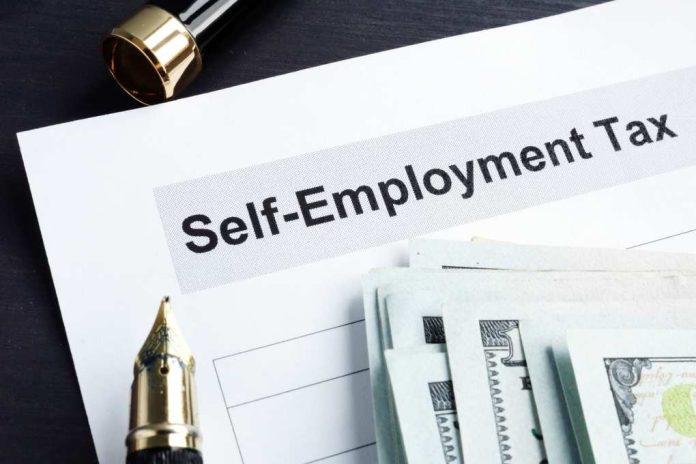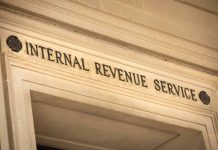
Are self-employment taxes higher than standard income taxes? And if so, why? If you find yourself asking questions like these, you’re in the right place, We’re going to cover everything you need to know on the topic today.
Self-employment is becoming more and more popular, especially within the last few years. Many people may not realize that being self-employed comes with tax implications that they likely don’t deal with as regular employees. Understanding the tax side of self-employment can be tricky but it doesn’t need to be as complicated as it may sound!
Below, we’ll cover everything you need to know about self-employment taxes. Specifically, why they are higher than standard income taxes. But, let’s start with a brief overview of self-employment for those who are just starting this journey.
What Does Self-Employment Mean?
Before you can understand the tax implications that come along with self-employment, you should first understand what it means to be self-employed. The term “self-employed” refers to an individual that works for themselves. They are not employees at another company, so they are self-employed. However, there are different definitions of self-employment. That is why looking at the IRS definition can help clarify.
IRS Definition of Self-Employed
The Internal Revenue Service (IRS) has guidelines for what self-employment eligibility requires. As long as an individual meets at least one specified criteria then they are considered self-employed:
- An individual who is otherwise in business for themselves (including part-time business)
- A member of a partnership that carries on business or a trade
- An individual who carries on business or a trade as a sole proprietor or independent contractor.
For more clarification on what makes an individual self-employed, you can find additional information online on the IRS website.
Understanding the Tax Side of Self-Employment
There are a bunch of different aspects that you should take into consideration when it comes to understanding self-employment tax.
The current self-employment tax rate is 15.3%. This rate is made up of social security and medicare taxes.
Both the social security tax rate (12.4%) and the medicare tax rate (2.9%) are what make up the self-employment tax rate. This rate is only applicable to the net earnings (also known as profit). Every tax situation is unique but some individuals are required to pay self-employment tax throughout the year instead of just during tax time. When you are self-employed you will usually need to also pay income tax as well.
You can think of the Social Security and Medicare taxes you pay as self-employed to be similar to the Social Security and Medicare taxes that wage earners get withheld. When you hear the term self-employment tax, it generally means that it is just accounting for the social security and medicare taxes and not the income tax as well.
Are Self-Employment Taxes Higher Than Standard Income Taxes?
Unfortunately those that are self-employed can expect to pay more taxes than someone who is employed by someone else. Think about it like this: when you are a normal W-2, your employer covers half the amount of taxes that you pay.
For example, if you need to pay a total of $1,000 in taxes, you and your employer would be responsible for $500. When you are self-employed, you are basically the employer and the employee.
This means the same $1,000 will be due but instead of someone splitting it with you, you are responsible for making the payment on your own. So even though it can be a common misconception that self-employment taxes are lower, that’s actually not the case.
Why Are Self-Employment Taxes Higher?
Ok…with all that said, why are self-employment taxes higher than standard income taxes? Self-employment taxes are higher because you are effectively both the employer and the employee. This means that you not only have to pay the employee’s portion of Social Security and Medicare taxes, but you also have to pay the employer’s portion. This can add up to a significant amount of money.
Essentially, the government is doubling dipping into your income. Yes, this is wrong – but, it’s the price you pay to live here in the states. This is why more and more entrepreneurs are circumventing self employment taxation by setting up an LLC or corporation overseas, and living there for a period of time instead.
But, that’s a conversation for another day. Just know that there really is no logical reason that self-employed people have to pay more taxes other than government greed. With that said, how much higher are self-employment taxes than regular taxes? Let’s take a look at how to calculate what you need to pay below…
How Much Higher are Self Employment Taxes Than Regular Taxes?
The best way to avoid errors in your tax calculations is to get help from a professional like an accountant. You can find private accountants or go through companies like H&R Block.
However, you should still learn how to calculate self-employment tax on your own so you can verify the work your accountant does! This can act as another layer of ensuring you submit the right information to the Internal Revenue Service (IRS).
For tax purposes (like calculating how much self-employment tax you will be responsible for) you can look at the amount of gross income you received for the year. Once you figure out your gross income, you can take out business expenses (deductions) so that you can find your net earnings. Once you find your net earnings, you can assume that 92.35% will be subject to self-employment tax.
For example, if your net earnings for the year were $100,000 then $92,350 will be what should be considered taxable. Now that you know how much of your net earnings will be subject to getting taxed, you can apply the 15.3% rate. You can make a guess that you will be responsible for $14,129.55.
However, tax laws, deductions, and other factors may influence how much you are actually responsible for. That is why you should always confirm with a professional! You can learn more about how much self-employment income is taxable in our blog.
Who is Responsible for Self-Employment Taxes?
You can always review who must pay self-employment tax online at the IRS website. However, it is important to keep in mind that tax rules apply to anyone who is self-employed regardless of age. In fact, even if you are receiving help from programs like Social Security or Medicare, you could still have to pay self-employment tax.
We are going to sound like a broken record but we recommend getting help from a professional before paying self-employment tax. This will ensure that you are paying the correct amount to the IRS at first and could prevent you from dealing with more headaches down the line.
If you want to pay self-employment tax you will typically need to use an IRS Schedule C. This will allow you to calculate your net earnings from self-employment. Then you will use an IRS Schedule SE to calculate the amount of self-employment tax that you are responsible for.
From there, you will need to give information like your Social Security number or individual taxpayer identification (ITIN) number. Taxes in America vary but generally, you should expect to make payments as you go throughout the year. If you don’t do this, then you may deal with tax penalty fees. To learn more about declaring self-employment income on taxes, read our complete guide.
How to Reduce Self-Employment Tax
Since self-employed individuals usually have to deal with more taxes, there are ways that you can reduce the impact to your wallet! You could choose between an LLC or a corporation.
Taxes of an LLC
If you decide that you want to reduce your self-employment tax by setting up an LLC, then you are in luck. You have a couple of options for LLC self-employment taxes. You could either choose:
- Disregarded LLC: If you make an LLC with one member and don’t choose to be taxed as a corporation then you will still have self-employment tax just as an LLC. This does not change the amount of tax liability for self-employment tax that you have and self-employment tax applies.
- S Corp LLC: S Corp (short for S corporation) is an option that you can choose if you want to be taxed as such. If you pick this LLC option, you will not have to pay self-employment tax!
Taxes of a Corporation
Just as you can choose to form an LLC, you could also choose to form a corporation instead. There are two main types that you could from which would be:
- C Corporation: When you choose to set up this type of corporation, you are responsible for paying corporate tax on what the corporation earns throughout the year. You will also need to pay income tax on any salary that you pay yourself. Since you are an employee of the corporation you will not be responsible for paying self-employment tax, instead, the corporation pays the employer’s portion of those taxes. If the corporation is yours, then you have to deal with that responsibility.
- S Corporation: Don’t get this confused with an S Corp LLC! Instead, this S-corporation setup is referred to as a pass-through entity and the corporation isn’t responsible for paying income tax. S corporations can be a little complicated to understand but basically, you have the option to separate the income earned by the corporation into two different methods of payment to yourself as the individual. This provides the opportunity to avoid self-employment tax on funds paid as a distribution. This benefit also applies if you have an S corp LLC!
Final Thoughts on Why Self-Employment Taxes are Higher Than Standard Income
There you have it. We’ve answered some of the common questions you may have come here with today:
- Are self-employment taxes higher than standard income taxes?
- Why are self-employment taxes high?
- How much higher are self-employment taxes than income taxes?
Unfortunately, self-employment taxes tend to be higher since an individual who is self-employed is still responsible for income tax at a local, state, and federal level as well as the self-employment tax rate which accounts for both Social Security and Medicare taxes.
There are ways that you can reduce the overall amount of self-employment tax that you deal with but only in specific situations. Dealing with self-employment taxes can be very difficult so it is important that you ensure everything is accurate with the help of a professional if you can.
If you want to learn more on the subject of self-employment, we have all sorts of great resources in our blog. Check out our guide on whether or not self-employment wages can be garnished, applying for unemployment while self-employed, or self-employment for retirees.




























